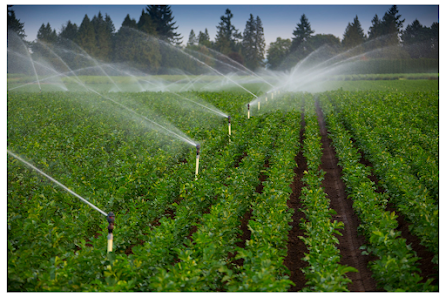Reverse Osmosis Water Treatment Applications in Agriculture
Understanding Reverse Osmosis in Agriculture
In this comprehensive guide, we delve into the vital role of reverse osmosis water treatment in agriculture. With the ever-increasing demand for sustainable farming practices and the need to optimize water usage, understanding the applications of reverse osmosis (RO) in agriculture becomes crucial. We, at Nice Water, are committed to providing you with valuable insights to help you make informed decisions and implement effective water treatment strategies in your agricultural operations.Advantages of Reverse Osmosis in Agriculture
1. Improved Irrigation Water Quality
One of the primary applications of reverse osmosis in agriculture is the treatment of irrigation water. By utilizing RO systems, farmers can significantly enhance the quality of water used for irrigation. High-quality water ensures the optimal health and growth of crops, leading to better yields and improved overall farm productivity.2. Reduced Salinity Issues
In regions where water sources have high salinity levels, reverse osmosis proves to be an effective solution. The semipermeable membrane used in RO systems efficiently removes salts and minerals from the water, preventing salinity-related issues that can negatively impact plant health.3. Mitigation of Waterborne Diseases
Contaminated water can harbor harmful pathogens that may lead to waterborne diseases in plants. RO treatment effectively eliminates bacteria, viruses, and other microorganisms, reducing the risk of infections and crop damage.4. Optimal Nutrient Uptake
Reverse osmosis not only improves water quality but also facilitates better nutrient uptake by plants. By providing clean and purified water, plants can absorb essential nutrients more efficiently, leading to healthier and more robust crops.5. Sustainable Water Management
As water scarcity becomes a pressing global issue, implementing RO water treatment in agriculture promotes sustainable water management practices. By reusing treated water, farmers can conserve water resources and reduce their environmental footprint.RO System Setup and Maintenance
To maximize the benefits of reverse osmosis in agriculture, it is essential to set up and maintain the RO systems properly. Here are the key steps:- Water Analysis: Conduct a comprehensive water analysis to identify the specific contaminants present in the water. This analysis will help determine the appropriate RO system and pre-treatment requirements.
- Pre-Treatment: Depending on the water quality, pre-treatment processes like filtration and softening may be necessary to protect the RO membrane from fouling and damage.
- RO System Selection: Choose a reliable and high-quality RO system that suits the water treatment needs of your agricultural operation. Consider factors such as flow rate, membrane capacity, and energy efficiency.
- Installation: Ensure the RO system is correctly installed by following the manufacturer's guidelines and consulting with experts if needed.
- Regular Maintenance: Regularly inspect and maintain the RO system to ensure its optimal performance. Replace membranes and filters as recommended by the manufacturer.
At Nice Water, we understand the significance of RO water treatment in agriculture, and we are committed to assisting you in making the right choices for your farm. Embrace the power of reverse osmosis and unlock the full potential of your agricultural endeavors. For any further information or assistance, feel free to contact us.
Contact us today to revolutionize your agriculture with advanced reverse osmosis technology!


.png)

Comments
Post a Comment